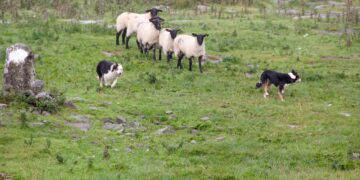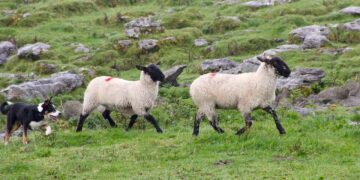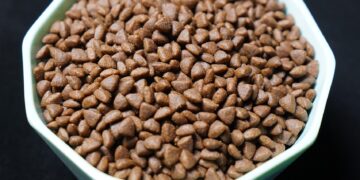Unveiling the Best Food for Older Dogs: A Guide to Optimal Nutrition
Just like their human counterparts, older dogs have different nutritional needs compared to their younger selves. As your dog ages, their metabolism slows, activity levels decrease, and health issues may start to surface, necessitating a thoughtful adjustment to their diet. This guide is designed to help you identify the best food choices for your senior canine friend, ensuring they not only enjoy their meals but also derive maximum health benefits from them.
Understanding the Nutritional Needs of Senior Dogs
As dogs age, their dietary requirements change. Primary among these changes is a need for fewer calories, yet a sustained—or even increased—demand for protein and fiber. Balancing these needs efficiently is crucial in preventing weight gain while supporting muscle mass and aiding digestion.
Reduced Caloric Intake
Since older dogs tend to be less active, they require fewer calories to avoid obesity, which can exacerbate health issues such as arthritis and diabetes. High-quality, easily digestible proteins become essential to maintain healthy muscle mass.
Increased Protein and Fiber
Increased dietary fiber can help improve colon health, contributing to better digestion and absorption of nutrients. Furthermore, although senior dogs need protein to maintain muscle, the type of protein and its digestibility are key factors to consider. Proteins that are gentle on the kidney and efficiently utilized by the body are preferred.
Vitamins and Supplements
Vitamin supplements such as glucosamine and chondroitin can be beneficial for joint health, while omega fatty acids help maintain skin and coat quality. Antioxidants are also important for aging immune systems, reducing oxidative stress on your dog’s organs.
Choosing the Right Food for Your Aging Dog
Selecting the appropriate food involves more than adjusting nutrient levels; it also includes considerations like the kibble size and the specific health conditions your dog may face.
Dry vs. Wet Dog Food for Seniors
Both wet and dry foods have pros and cons for senior dogs. Wet food can be easier for older dogs to chew and digest and is excellent for hydration. However, dry food provides a crunchy texture that helps maintain dental health. Many owners opt for a combination of both to optimize nutrient intake and manage health aspects like kidney function and dental hygiene.
Special Diets for Specific Health Issues
For dogs with kidney issues, lower protein and phosphorus contents might be necessary. Conversely, dogs with failing eyesight could benefit from diets rich in antioxidants like lutein and vitamins E and C, which support eye health. It’s important to consult your vet to tailor the diet according to your dog’s health needs.
Practical Tips for Feeding Your Senior Dog
Ensuring that your older dog eats well requires more than just serving the right food. Here are practical ways to enhance their eating experience and ensure optimal nutrition absorption.
Serving Size and Frequency
Smaller, more frequent meals can benefit older dogs, especially those with digestive tract issues. It helps maintain a steady metabolic rate and facilitates easier digestion.
Making Food More Appealing
Some older dogs may lose their sense of smell and taste. You can enhance their appetite by warming their food to release aromas or by adding tasty toppers like chicken broth (ensure it’s low sodium) or small pieces of cooked chicken.
Hydration is Key
Always ensure that fresh water is available. Hydration is crucial, especially if your dog’s diet includes dry food. Consider adding water or broth to kibble to make it easier to eat.
Frequently Asked Questions
Is grain-free food good for senior dogs?
Grain-free diets, while popular, are not required for most older dogs unless advised by a vet for specific health conditions. In fact, grains can be a good source of essential nutrients and fiber.
How do I know if my dog’s food is suitable for their age?
Look for dog foods labeled as “Senior” or those with age-related formulations. These foods generally have the adjusted calorie, protein, and fiber content suitable for older dogs.
Should I change my senior dog’s diet gradually?
Yes, sudden changes in diet can cause digestive upset. Gradually mix the new food with the old over several days to allow your dog’s digestive system to adjust.
Conclusion
Choosing the right food for your senior dog plays a critical role in managing their health and wellness. By understanding their unique nutritional requirements, you can provide a diet that supports them through their golden years. Remember, a well-fed senior dog is a happy and healthy companion. Always consult with your veterinarian to tailor dietary choices to your dog’s specific health needs.














































